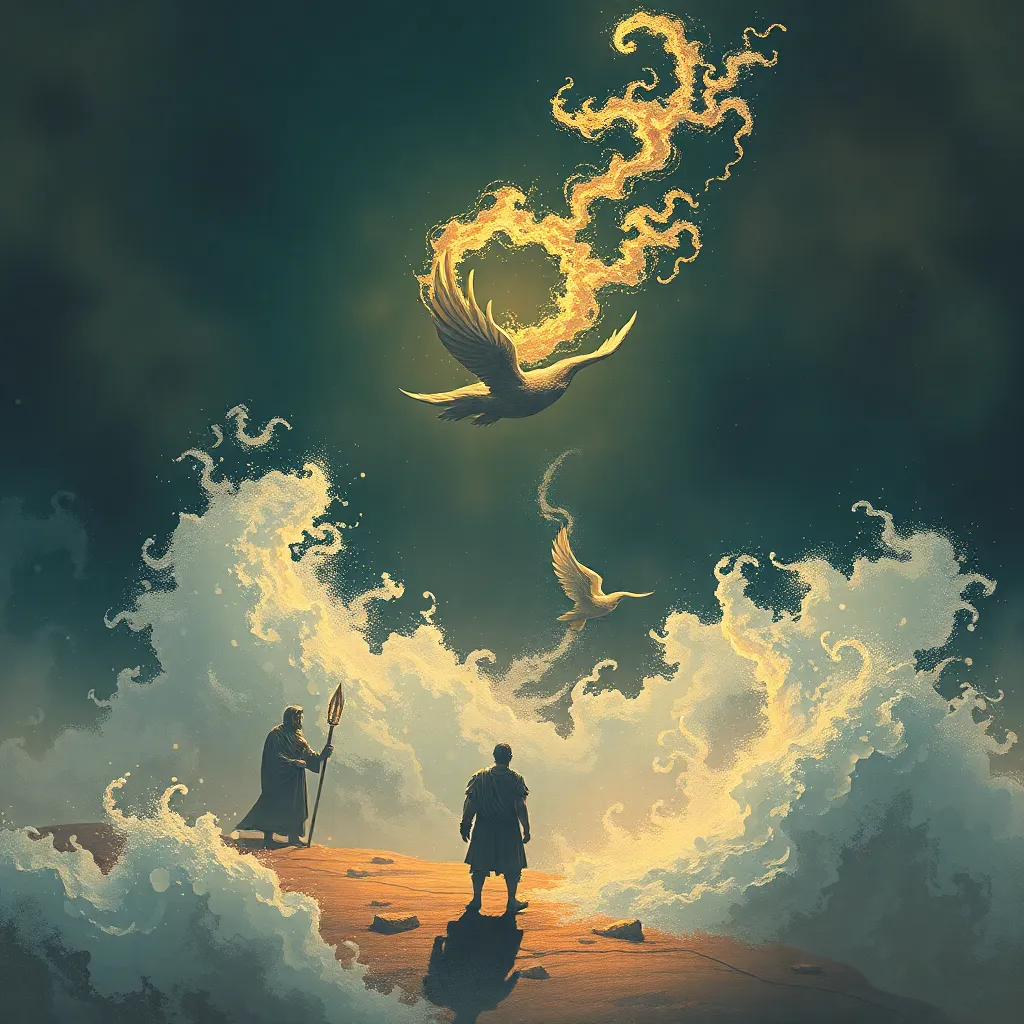The Role of Fate in The Odyssey: The Intersection of Free Will and Destiny
I. Introduction
Homer’s “The Odyssey” is one of the most significant literary works of ancient Greece, detailing the adventurous journey of Odysseus as he strives to return home after the Trojan War. This epic poem not only showcases the physical trials faced by its hero but also delves deeply into the philosophical themes of fate and free will. The narrative presents a complex interplay between the predetermined paths set by fate and the choices made by the characters, particularly Odysseus.
Understanding the tension between fate and free will in “The Odyssey” is crucial for comprehending the motivations of its characters and the moral lessons embedded within the story. This article examines how fate and free will coexist and influence the characters’ journeys in “The Odyssey,” revealing the intricate balance between destiny and personal agency.
II. Understanding Fate in Ancient Greek Culture
In ancient Greek mythology, fate is often referred to as “moira,” signifying a predetermined course of life that individuals are destined to follow. The Greeks believed that fate was a powerful force that governed not only the lives of mortals but also the actions of the gods themselves.
The concept of fate carries profound significance:
- It represents the inevitable events that are beyond human control.
- It highlights the limitations of human agency in the face of divine will.
- It serves as a reminder of the transient nature of life and the importance of accepting one’s destiny.
In “The Odyssey,” the impact of fate is evident as characters navigate their lives, often feeling the weight of their predestined paths. The characters’ lives are intricately woven into the fabric of fate, influencing their choices and actions throughout the epic.
III. The Role of the Gods in Shaping Fate
The gods play a significant role in shaping the fate of mortals in “The Odyssey.” Their interventions often illustrate the delicate balance between divine intervention and human effort.
Some notable examples of divine influence in the story include:
- Athena’s guidance of Odysseus: As the goddess of wisdom and warfare, Athena acts as a protector and mentor to Odysseus, offering him counsel and support throughout his journey.
- Poseidon’s wrath and its consequences: Poseidon, the god of the sea, harbors a deep grudge against Odysseus, causing numerous obstacles in his path home. This illustrates how the gods can actively disrupt human endeavors.
This dynamic showcases the tension between divine will and human action, emphasizing that while fate plays a significant role, personal decisions and divine interactions shape the course of events.
IV. Odysseus as a Figure of Free Will
Odysseus embodies the struggle between fate and free will throughout his journey. His character is defined by his intelligence, resourcefulness, and determination to overcome the challenges he faces.
Key aspects of Odysseus’ exercise of free will include:
- Analysis of Odysseus’ decisions: Odysseus often faces critical decisions that reflect his cunning, such as outsmarting the Cyclops Polyphemus and devising the plan to infiltrate Troy.
- Moments of rebellion against fate: Despite the prophecies that hint at his struggles, Odysseus often acts against the odds, showcasing his unwillingness to submit entirely to fate.
- The interplay between cunning and prophecy: While Odysseus is often guided by fate, his cleverness allows him to navigate and manipulate his circumstances.
V. The Influence of Other Characters on Fate
Other characters in “The Odyssey” also play significant roles in shaping their destinies, reflecting the broader themes of agency and fate.
Some key figures include:
- Penelope: As Odysseus’ wife, Penelope demonstrates resilience and intelligence in managing her household and the suitors who threaten her home, actively shaping her own fate.
- Telemachus: The journey of Telemachus represents a crucial coming-of-age narrative. His quest to find his father signifies the importance of personal agency in the face of adversity.
- Supporting characters: Various characters, such as Eurycleia and the suitors, illustrate how individual choices impact the broader narrative of fate.
VI. The Consequences of Free Will
While free will offers characters the ability to make choices, it also leads to significant consequences that shape their fates.
Instances where choices lead to dire consequences include:
- The decision of Odysseus’ men to eat the cattle of Helios, resulting in their destruction.
- Penelope’s strategic delays, which both protect her and prolong her suffering.
The relationship between moral choices and fate is a recurring theme, suggesting that while fate may be predetermined, the ethical implications of one’s actions remain significant. Characters grapple with the responsibilities that come with free will, emphasizing the moral weight of their decisions.
VII. The Resolution: Fate and Free Will in Conclusion
The ending of “The Odyssey” reflects a nuanced balance between fate and free will. Odysseus ultimately returns home, fulfilling his fate, yet his journey is marked by numerous choices that demonstrate his agency. The resolution of his struggles signifies the intertwining of destiny and personal effort.
The broader implications for understanding human experience resonate beyond the epic, inviting readers to reflect on their own lives. The themes of fate and free will continue to influence literature and philosophy, prompting discussions about human agency in the face of predetermined paths.
VIII. Conclusion
In summary, the significance of fate and free will in “The Odyssey” serves as a profound exploration of human experience. The epic illustrates how characters navigate their destinies, balancing the forces of fate with their personal choices. The intersection of these themes invites readers to contemplate the nature of existence and the impact of individual agency.
As we delve deeper into these themes, it becomes evident that they resonate in numerous literary works throughout history, encouraging further exploration of the intricate relationship between destiny and human action.




